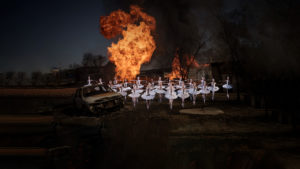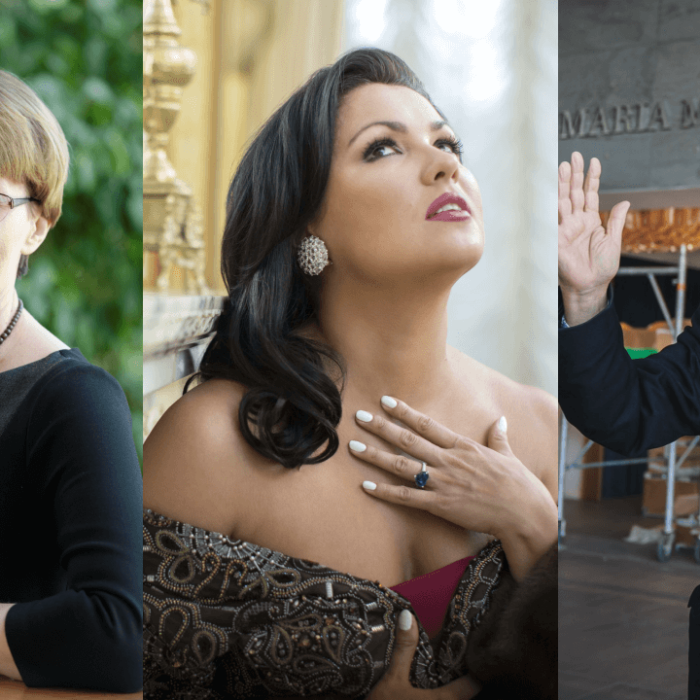
I tried to write again today, but I cannot write.
The war has gone on for one month.
Every time I start an article, I burst into tears. My writing only lasts a couple of paragraphs.
Today, everyone is talking about the so-called cancelation of [Russian] culture. And in normal life, I’d expect myself to become an ardent advocate of it immediately. I think others expected it too. Isn’t it what my father taught me through the pieces of dissident culture? That the thoughts and words and tunes are real Russia. The country I will never be ashamed of, the motherland of Brodsky and Rostropovich, the homeland that is always with us.
In my childhood, I always found the stories of Russian immigration romantic, in a way. I’ve always been convinced that such [never easy] experiences have a profound effect on any thinking person. Oh, how I wish I never had them. But it’s too late. Were the 20th century’s dissidents also going through what we are into today?
What I feel now, I could doubtfully expect from any of my childhood heroes. These feelings are weird. Cancel Putin’s supporters? That’s great, no doubt. Practice a bit of McCarthyism? Well, it might not be fair, but that is well expected.
Now what about Tchaikovsky? Should I be angry or offended? How wonderful it would be to be certain about what to feel (and immediately in my head “well, that is exactly what lucky victims of propaganda get — the unwavering confidence in what is right to feel and think.” So now, I have a reason to be happy about being unhappy and uncertain).
Just yesterday, La Monnaie De Munt released a beautiful and well-written statement by its director Peter de Caluwe. I liked every line of it. He didn’t call Russia the aggressor. He used the word Regime instead. De Caluwe stood for my native culture better than I could these days. I felt the warmth in my heart and light. Was it hope? For not crying, for being forgiven? Although it wasn’t his goal, it worked out.
And maybe for the first time during this month, I felt really good for a moment. But then… this warmth and light transformed into something else. Something extremely uncomfortable. And I immediately recalled the pain, almost physical pain that I felt when Vladimir Jurowski changed the programming with Rundfunk-Sinfonieorchester Berlin the next day after the beginning of the Russian invasion. On that day, everything felt surreal. In that agony, I tried to find shelter in my native culture, I tried to soothe my worrying daughter and myself by constantly repeating: “Russia is not Putin and his regime. Russia is Akhmatova, Russia is Tchaikovsky, and Mayakovsky, my dear.” And at that moment, to see how an amazing musician of the same origin cancels Tchaikovsky was simply unbearable. I didn’t care much about details or anything at all. It was a headshot, another reason to cry my heart out.
And this feeling suddenly emerged again, just a few minutes after I read the beautiful statement from Brussels. This time it shouted at me: “How dare you?!” At that point, I felt clear on something — I don’t want to be soothed and comforted. I don’t want to be forgiven. I don’t want this warmth and this light. I have no right to it. Jurowski was right when he canceled, when he brought this pain to me. I know he was in pain too. It feels fair, it feels right. For those of us, Russians, who can understand with a vigorous mind and can feel with a broken heart, it’s time to suffer in silence.
No, I don’t blame my culture. I don’t betray it. I stay with it, buried. And I know the time will come, and I hope it will come soon when Russian culture returns, in all its glory and power. I know for sure it won’t die in silence, no matter how long the silence will last. Putin cannot hurt it. The war cannot hurt it. It’s not a question of the survival of Russian culture, but a question about how can the music play, when people are dying, when people are losing their freedom under this bloody regime? And not only the people of Ukraine but also the people of Russia.
They say, the innocent always suffer in wars. And that Russian culture is another victim of this conflict. But I am not sure about “Innocent.” In fact, I have a huge concern about that concept. The regime started this war. We know whom to blame. It has a name and a face. And yet, I feel the responsibility is common. For all Russians. So what if I protested years back? So what if I haven’t lived in Russia for several years? Am I innocent in this war? If so, then why do I feel guilt? Why does anything I do seem not enough? Why can’t I write?
If I think about Russian culture as a part of World culture, I find it natural that it now might be muted as a part of the inner self-(?) regulation of this system. Perhaps, it’s what I did to myself. No one blames me or is throwing stones at me, and it’s me who shut myself up for a single reason — not to protect myself.
There’s no place and time for a Russian culture now. For too long it has been an excuse for all of us. We have a great heritage, but have allowed propaganda in schools. Our writers are amazing, but we have no respect for democracy and human rights. Enough. The Great Russian culture was supposed to educate (its own people in particular).
Stop using it to mask problems, and excuse crimes.
Stop.
Categories
Editorials

